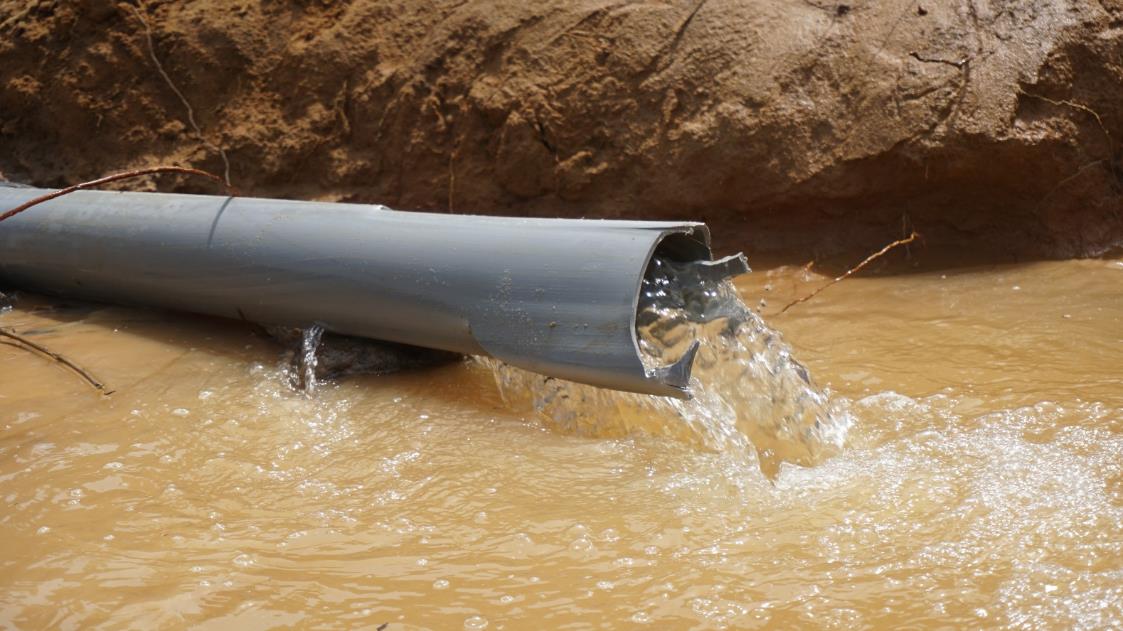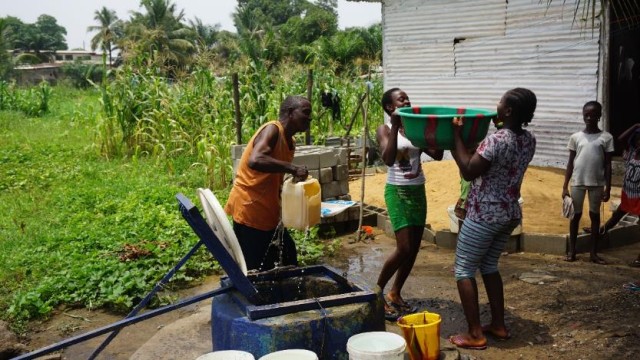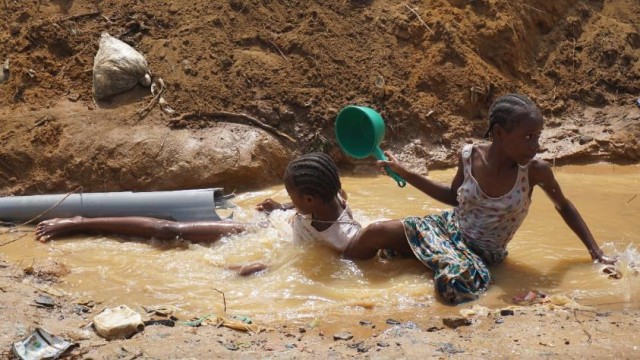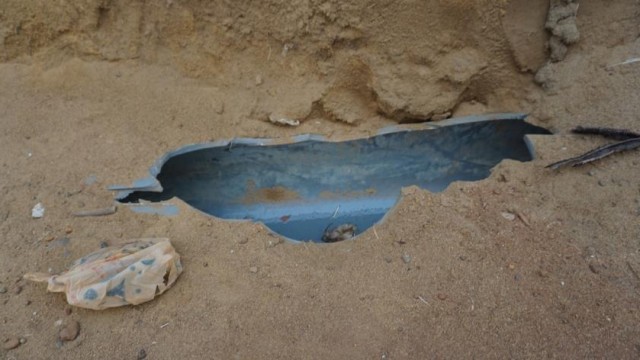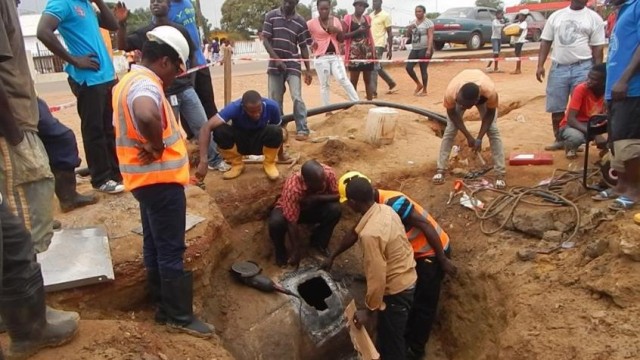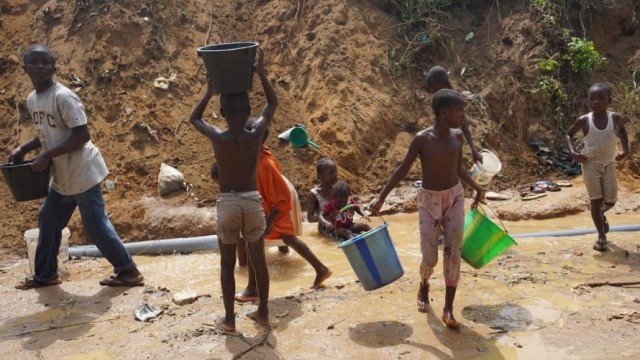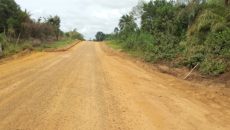CONGO TOWN, Montserrado – In a case that reflects an apparent lack of coordination among government agencies, construction equipment rehabilitating Chugbor Road have damaged several water pipes, causing water outage in the Old Road community for almost one week now.
As a result of the action, residents in the area now have to fetch water from the various wells within their community.
At one of the sites, children were seen bathing and playing in the water and motorcycle riders washed their bikes in the water which oozed from the broken pipe on one side of the road.
On the other side of the road lies a blue PVC pipe which was also damaged by the company with piles of sand in it.
Engineers from the Liberia Water and Sewer Corporation have not yet intervened to remedy the situation.
Jesefu Morris Keita, the Public Works director for communications and documentation, could not determine whether the work at the location was done by the Ministry of Public Works itself or whether it was subcontracted to local contractors. He promised to provide the full details in the near future.
Efforts to reach Julius Berrain, the representative of the district, failed. Berrain had appeared during the previous week on the Liberia Broadcasting System to talk about the development of the roads within his district.
Ideally, any company or individual beginning a work that requires excavation of earth should contact all public utility companies to ensure that unnecessary damage and disruption to utilities are avoided.
In many states in the U.S., for example, there are laws and systems in place to prevent damage to underground utilities. In Massachusetts, individuals and companies that excavate without calling a ‘Dig Safe’ number can be fined US$1,000 for their first offense and between US$5,000-10,000 for subsequent offenses.
After individuals call the hotline, various utility companies are usually dispatched to the site to mark the location of their underground facilities with paint or other markers.
This is not the first time excavations as a result of construction has resulted in water outage within the region. In August 2016, LWSC’s 36-inch water main was damaged by Liberia Telecommunications Corporation engineers laying fiber optic cables.
John Kpakolo, who was deputy managing director of technical services at LWSC at the time, said the lack of coordination among various government entities was the cause of the outage.
He said the damage to the water main highlighted the lack of coordination between public utilities operating within the Monrovia metropolitan area.
Horatio D. Bernard, LWSC’s transmission, and distribution manager had also highlighted the need for all government entities to work together to prevent issues like this from happening. “Coordination should always be done in the process,†he said.
Emblematic of the lack of coordination, Bernard added that not a single representative from LIBTELCO was present when LWSC technicians were repairing the damaged pipe.
“This is not the first time that activities by entities other than LWSC have resulted in water outages,†Bernard said.
He noted that in November of 2015, construction by a private company near the Duport Road community in Paynesville caused a more limited outage.
Amos C. Sawyer, the chair of the Governance Commission, has often talked about the need to enhance coordination within the government. Although his comments on the topic generally focus on coordination at the highest levels of government and between the three branches, it still resonates in this case.
Featured photo by Zeze Ballah
